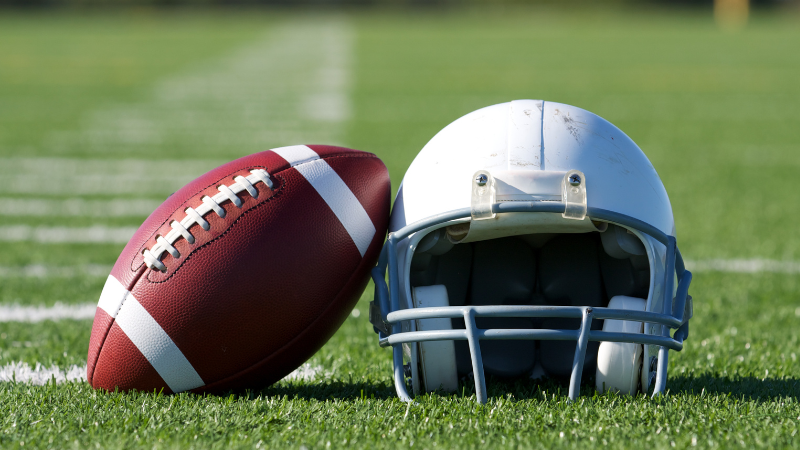Tua Tagovailoa Suffers Concussion During Dolphins-Bills Game
September 13, 2024

Miami Dolphins quarterback Tua Tagovailoa was ruled out with a concussion he suffered during last night’s game between the Miami Dolphins and the Buffalo Bills. During the third quarter of the game, he made contact with Bills safety Damar Hamlin when his helmet made hard contact with his body and he immediately went into a fencing response, according to ESPN.
The Brain Injury Association of America wishes Tagovailoa a speedy and full recovery from his concussion symptoms.
Injury Update | Tua Tagovailoa has been ruled out with a concussion.
— Miami Dolphins (@MiamiDolphins) September 13, 2024
It is important to be aware of the symptoms of a concussion. In a survey conducted by the Concussion Awareness Now coalition, 53% of people who suspect they have a concussion said they did not seek care. If you believe that you have suffered from a concussion, it is important to stop, look for symptoms, and get it checked by a medical professional.
Tua Tagovailoa’s Concussion History
This has not been the first time that Tagovailoa has suffered a concussion while playing football. We previously wrote about the serious dangers that can be posed by repeat concussions when he was hospitalized for multiple concussions in 2022 in Lessons to Be Learned From Tua Tagovailoa’s Repeat Concussions.
“The critical issue for Tua will be how long it takes him to move through the protocol to be cleared. I’m anticipating it will take longer than last time,” said Dr. Gregory O’Shanick, BIAA’s National Medical Director-Emeritus, referencing the multiple TBIs Tua sustained in 2022. “In my humble opinion, if and when that is the case, he should seriously consider retirement.”
The late Rep. Bill Pascrell who founded the Congresional Brain Injury Task Force sent a letter in 2022 to the Commissioner of the NFL and owner of the Miami Dolphins demanding answers about the NFL’s concussion protocol. The NFL Player’s Association announced a week later changes to the league’s concussion protocols, according to ESPN.
Thinking tonight about @BillPascrell — U.S. congressman who recently passed away.
— Dan Diamond (@ddiamond) September 13, 2024
Pascrell was so upset about Tua Tagovailoa appearing to suffer two head injuries in four days back in 2022, he demanded answers from the NFL and Dolphins about whether the concussion protocol was… https://t.co/1uDMaxM6tX pic.twitter.com/JFZl58at6h
What is a Concussion?
A concussion is an injury to the brain. They occur when your brain moves in ways it shouldn’t, causing damage to the superhighway of neurons you depend on every day. That damage can change the way you act, think, and feel.
- Concussions are the most common type of traumatic brain injury (TBI).
- Concussions are sometimes called “mild traumatic brain injuries (mTBIs). “Mild” refers to the fact that concussions are not generally life threatening. That doesn’t mean they’re not serious. In fact, they can be devastating if not attended to properly.
- Concussions occur when there’s a sudden impact from a fall, bump, hit, or jolt that causes the brain to bounce around or twist inside the skull. In some cases, the brain may strike the inner skull, or the head may also decelerate and stop its motion, causing the brain to hit the opposite side of the skull.
- Concussions can happen to anyone, anytime, anywhere. Falls during everyday activities—walking to the car, or tripping on a toy at home, for example, account for nearly half of all concussions in the United States.
- 53% of people who suspect they have a concussion never get it checked. That means 1 in 2 concussions are ignored.
The Impact of Repeat Concussions
Although many people feel back to their normal selves within two or three weeks of sustaining a concussion, lifelong symptoms persist for others. This is particularly true for those who sustain more than one injury in a short period of time. Assessment, treatment, and avoiding secondary injury can prevent long-lasting consequences.
Post-concussive syndrome (PCS) is diagnosed in approximately 15% of individuals. This syndrome indicates that the side effects of concussion have persisted beyond the expected recovery time window. Individuals who sustain multiple concussions are at higher risk of PCS. They are also more likely to experience chronic traumatic encephalopathy (CTE), a disease that is linked to specific changes in the brain that we are learning more about each day.
Long-term impacts of concussion are increased by repeat injury. The following health outcomes are associated with concussion:
- Neurological disorders: Alzheimer’s disease, multiple sclerosis, Parkinson’s disease, dementia
- Depression
- Pneumonia
- Cognitive impairment
- Chronic headaches
- Chronic fatigue
- Endocrine disorders
- And more
Have a Question About Concussions or Where to Find Help?
If you need help, the compassionate and knowledgeable experts at the National Brain Injury Information Center are here to help. Call 1-800-444-6443 or send us a secure message and we’ll help you get connected with local resources in your area.
Contact the National Brain Injury Information Center
References:
https://biausa.org/brain-injury/about-brain-injury/what-is-a-brain-injury/concussion-mtbi/concussion-information
https://concussionawarenessnow.org/
https://www.cdc.gov/falls/data-research/index.html
https://www.uptodate.com/contents/head-injury-in-children-and-adolescents-beyond-the-basics/print
https://concussionawarenessnow.org/wp-content/uploads/CAN_DitchTheMyths_Infographic_No1.pdf
https://biausa.org/public-affairs/media/true-or-false-seven-common-myths-about-brain-injury
